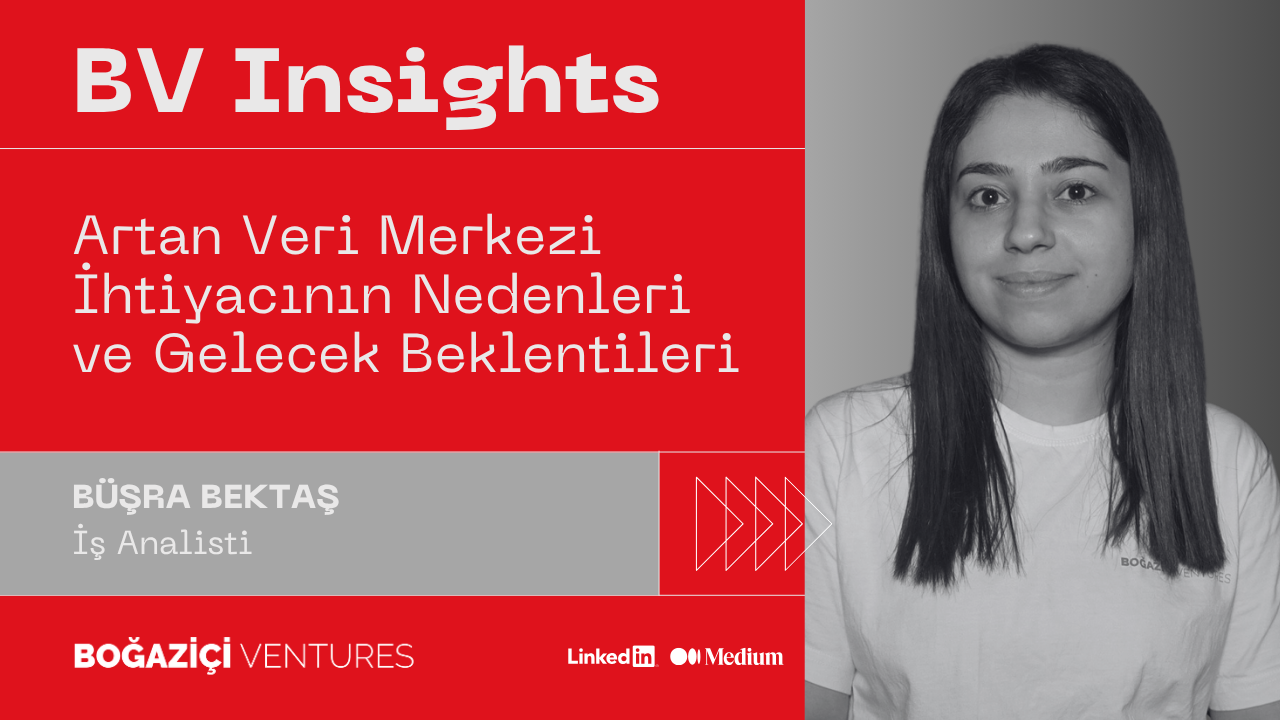Transformation Mechanisms from Industry to Startups and Success Stories
The industry of the 21st century is measured not only by production capacity but also by the quality of its capital. Today, production facilities achieve real competitive advantage when manufacturing is combined with innovation, technology, and financial strategy.

The industry of the 21st century is measured not only by production capacity but also by the quality of its capital. Today, production facilities achieve real competitive advantage when manufacturing is combined with innovation, technology, and financial strategy.
In Turkey and around the world, industrial organizations are no longer merely producers; they are also emerging as investors, technology developers, and drivers of sustainable growth. Venture Capital Investment Funds (VCIFs), one of the key actors of this transformation, function as a strategic lever preparing industry for the competitive conditions of the future.
Industrial VCIFs transcend the traditional credit- and collateral-based financing model by directly investing equity, bringing production power together with innovation. In this way, industrial capital finances not only production, but also technology development, digitalization, and global-scale growth.
Established under Boğaziçi Ventures and BV Portfolio in cooperation with the Istanbul Chamber of Industry, the Istanbul Chamber of Industry Venture Capital Investment Fund (SOF) aims to support the growth of technology-based projects that will enhance the global competitiveness of Turkish industry. Our fund contributes to Turkey’s next-generation industrial infrastructure by supporting scalable, globally minded ventures that add value to the domestic production ecosystem. The Istanbul Chamber of Industry VCIF (SOF) nourishes a value chain stretching from production to technology, targeting the sustainable transformation of Turkey’s industry.
Today, these funds stand out not merely as financial instruments but as the concrete expressions of a strategic vision that brings together the country’s production power with technology.
Contribution of Industrial VCIFs to the Investment Ecosystem
The New Convergence of Capital and Industry
For many years, Turkey’s production economy relied largely on bank loans and equity to meet the financing needs of industrial companies. However, with the rapid acceleration of technological transformation, this method has become insufficient for meeting the capital requirements of industry. Today, it is no longer enough to simply produce; industries must invest in innovation, digitalize, and strengthen their competitiveness on a global scale. At this point, Venture Capital Investment Funds (VCIFs) represent a new financing paradigm. By directly investing equity, VCIFs support the growth of ventures and initiate an era of “smart capital” at the intersection of production and innovation.
This convergence of industry, entrepreneurship, and capital does not merely diversify financing; it also redefines the production-oriented growth model. While traditional industrialists focus on production capacity and working capital, VCIFs invest in the long-term value-creation potential of ventures, linking production innovation and cost advantages with the industrial base. This strengthens Turkey’s industrial infrastructure, making it more innovative, sustainable, and globally competitive. For example, the Istanbul Chamber of Industry VCIF (SOF) is one of the pioneers of this transformation, facilitating capital access for both industrialists and technology-based ventures. Thus, a strong synergy is formed between “traditional production” and “technological growth.”
The most important outcome of this new model is the evolution of capital in Turkey toward generating not only financial returns but also strategic economic impact. Thanks to VCIFs, industrialists not only find ventures and invest in them but also benefit from the knowledge and corporate governance capabilities of the investment ecosystem. This significantly strengthens the long-term growth strategies of industrial companies.
The convergence of industry and innovation can be seen as an economic restructuring process on Turkey’s path toward sustainable development goals. Today, structures like the Istanbul Chamber of Industry Venture Capital Investment Fund (SOF) serve not only as investment funds but also as strategic levers that unite the country’s production capacity with financial innovation.
Moglix
Moglix, a privately held India-based industrial technology platform founded in 2015, reached a valuation of approximately USD 2.6 billion in 2022, becoming a unicorn. The company digitalizes industrial production and supply chain operations, providing e-commerce infrastructure for production equipment, components, and industrial materials, as well as SaaS solutions that optimize the manufacturing sector. Moglix’s investors include fixed-asset industrial corporations and major industry players—clearly illustrating the “industry-to-startup” transformation mechanism.
This example demonstrates that capital is shifting not toward traditional production, but toward a new model of technology- and digital-transformation-driven manufacturing. Industrial companies gain direct access to capital markets and venture capital, boosting their capacity for global scaling.
Desktop Metal
Desktop Metal, Inc. (USA), a manufacturer of metal 3D printing systems, was founded in 2015 and reached a valuation of ~USD 1.2 billion. Investors include major industrial and automotive giants such as Google Ventures, BMW, and Ford. It is a strong example of a unicorn that offers technology closely tied to manufacturing and has attracted strategic industry investors.
The New Role of Industrial Chambers: Building a Capital Bridge
Traditionally, industrial chambers represented manufacturing companies and focused primarily on legislation, incentives, and export policies. However, in today’s economy, production power alone is not enough; financial resilience, access to innovation, and global growth capability have become essential. This shift has transformed industrial chambers from representative bodies into active players in capital markets.
Institutions such as the Istanbul Chamber of Industry (ISO) are pioneering this transformation by creating financial structures that integrate their members into the investment ecosystem. Through the Istanbul Chamber of Industry VCIF (SOF), industrialists’ savings are directed toward industry and technology-based ventures—keeping capital within the industrial ecosystem and supporting a production-oriented growth model.
One of the key contributions of industrial VCIFs is that portfolio companies benefit not only from financing but also from strategic guidance, market access, and technological transformation support. This evolves industrial chambers from traditional representation roles into direct financial partners in economic development.
For example, the investment committee of ISO’s fund consists of both fund managers and industry representatives, determining where capital should be allocated. Thus, financing decisions consider not only “financial return” but also “sectoral impact.” This model serves as an example for other regional industrial chambers as well.
EthonAI
Founded in Switzerland in 2021, EthonAI processes large datasets such as sensor data and visual analytics from production lines using causal AI models to deliver quality control, efficiency improvements, and waste reduction. In May 2024, the company closed a CHF 15 million (~USD 16.5 million) Series A round led by Index Ventures. Its customers include global industry leaders such as Siemens and Lindt & Sprüngli.
This example directly aligns with your content on “the new convergence of capital and industry”: industrial companies gain competitive advantage not only through production capabilities but also through investments in data analytics and AI. EthonAI exemplifies how capital serves as a lever for strategic growth, digital transformation, and global competitiveness.
Bright Machines
Bright Machines, founded in 2018 in California as a spin-off from manufacturing services giant Flex Ltd., aims to transform traditional labor-intensive electronics manufacturing into a software-defined, AI-enabled production model. Robotic arms, modular hardware cells, and AI-based software form the company’s “micro-factory” concept.
In 2024, the company received approximately USD 106 million in equity and USD 20 million in venture debt, totaling USD 126 million in its Series C round. Investors include BlackRock as well as strategic partners such as NVIDIA, Microsoft, and Jabil. This demonstrates that the company is seeking not only financial investors but also strategic partners in the industrial-technology ecosystem.
Bright Machines represents a technology-product-focused venture rather than a traditional production-oriented industrial operation. Investments are directed not toward conventional machinery but toward software development, data analytics, AI, and robotic system integration—clearly illustrating the shift from industrial production to venture capital-driven technology upgrading.
Contribution to Turkey’s Competitiveness
Turkey has long maintained its exports primarily through low- and medium-technology products. However, as global trade evolves, high-value-added production has become the core determinant of competitiveness. Venture Capital Investment Funds (VCIFs) play a critical role in Turkey’s industrial transformation by supporting R&D-driven, technology-based industrial ventures.
For example, investments in ventures developing energy-efficiency technologies or innovative solutions within the defense industry supply chain make Turkey’s export portfolio more sophisticated. Such investments foster an economic model that generates more value with fewer resources.
Many ventures supported by industrial VCIFs have the capacity to bring their products to global markets. This leads to not only increased direct exports but also deeper integration of Turkish brands into global value chains—strengthening Turkey’s identity as not only a producer but also a technology provider.
Supported ventures set new standards in their sectors through advanced production techniques, digitalization, green transformation, and data-driven management approaches. This transformation encourages other industrial firms to evolve in the same direction.
A VCIF-supported automation venture, for example, creates efficiency gains not only for its investors but also for all industrial facilities using its technology. This chain effect elevates Turkey’s competitiveness from micro to macro level, enabling the country to climb higher in the global industrial hierarchy.
Funding the Future of Industry
Industrial VCIFs are redefining Turkey’s production economy. By merging capital with technology, they enhance the global competitiveness of Turkish industry and act as key drivers of sustainable growth both domestically and internationally. Structures pioneered by the Istanbul Chamber of Industry VCIF (SOF) finance not only today’s investments but also the industrial infrastructure of the future.
Through this model, industrialists become not only producers but also investors in innovation. When technology-based ventures combine with the experience of industry, world-class solutions emerge in fields such as energy, defense, advanced manufacturing, automation, and artificial intelligence.
In conclusion, industry-focused VCIFs have the potential to become the locomotive of Turkey’s economic transformation. By supporting the nation’s production power with financial innovation, these structures are building not only today’s economy but also a competitive, green, and high-value-added economy of the future.


